legislation
Latest

Delivery robots will soon be allowed on Washington sidewalks
Washington has become the eighth state to greenlight the use of delivery robots on sidewalks and crosswalks. Governor Jay Inslee signed the bill yesterday, following support from Starship Technologies, which specializes in autonomous last-mile and local deliveries.

EU law could fine sites for not removing terrorist content within an hour
The European Union has been clear on its stance that terrorist content is most harmful in the first hour it appears online. Yesterday, the European Parliament voted in favor of a new rule that could require internet companies to remove terrorist content within one hour after receiving an order from authorities. Companies that repeatedly fail to abide by the law could be fined up to four percent of their global revenue.
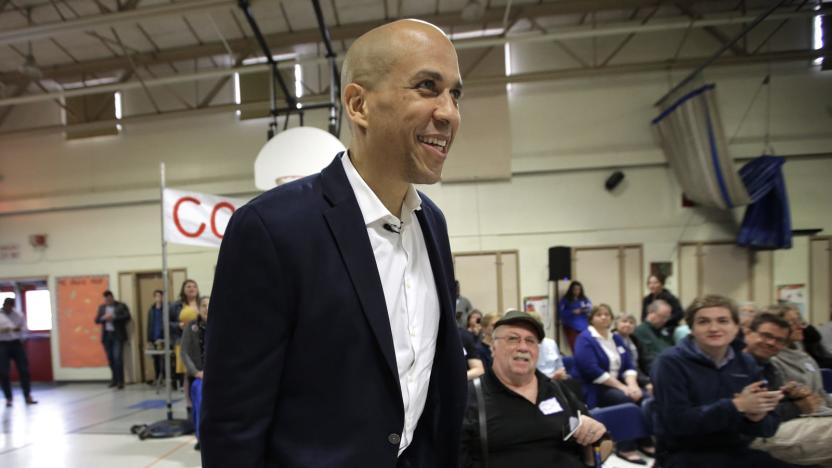
Senate bill would make tech companies test algorithms for bias
It's well established that algorithms can exhibit bias, however inadvertently, and a trio of US politicians believe they can do something about it. Senators Cory Booker, Yvette Clarke and Ron Wyden have introduced an Algorithmic Accountability Act that would require larger companies to test their algorithms and fix anything "inaccurate, unfair, biased or discriminatory." The move would also ask them to study how their systems protect personal data,and would let the FTC create regulations mandating impact studies for "highly sensitive" automated systems.

Senate bill would ban deceptive data collection by internet giants
If American legislators have their way, tech companies will have to face more than negative publicity if they collect your data in a less-than-sincere fashion. Senators Mark Warner and Deb Fischer have introduced a bill, the DETOUR Act (Deceptive Experiences To Online Users Reduction), that would bar internet firms with over 100 million monthly active users from tricking you into handing over personal data. Companies wouldn't be allowed to develop interfaces with the "substantial effect" of preventing you from making an informed decision. They also wouldn't be allowed to divide users into groups for experiments without consent, and couldn't develop compulsive experiences targeted at kids under 13 years old (such as auto-playing videos).

San Francisco lawmakers will consider a ban on e-cigarette sales
Authorities in San Francisco are considering banning the sale of e-cigarettes until the FDA carries out an investigation on their effects on health. Officials from the city -- which has already banned the sale of flavored tobacco and flavored vaping liquid -- said such a review should have been completed before e-cigarettes entered the market.

Judge says Washington state cyberstalking law violates free speech
Washington was one of the first states to fight cyberstalking through legislation, but it may have to rethink its approach. A federal judge has blocked the state's 2004 law after ruling that a key provision violated First Amendment protections for free speech due to vague terms. Its prohibitions against speech meant to "harass, intimidate, torment or embarrass" weren't clearly defined, according to the judge, and effectively criminalized a "large range" of language guarded under the Constitution. You could theoretically face legal action just by criticizing a public figure.

FCC's proposed rules target international robocallers
The FCC has been trying to squash robocalls for years, but it can't fully get rid of them until it can find a way to get calls from overseas under control. Now, the agency has proposed rules that would ban illegal spoofed text messages and calls originating from outside the US to recipients within the country, allowing it to address people's complaints where either scenario is involved.

Amazon joins Microsoft in calling for regulation of facial recognition tech
Faced with mounting criticism of its "Rekognition" system, Amazon has come out in favor of legislating facial recognition technology. In a blog post, the company has revealed its "proposed guidelines" for the responsible use of the tech that it hopes policymakers in the US and worldwide will consider when drafting new laws.

Amazon advised US government on a portal that could make it billions
A key Amazon executive and former Obama administration official privately advised the US government on a procurement portal that could be worth billions to the company, the Guardian reports. Director of Government Anne Rung corresponded with an official at the General Services Administration (GSA) about how the government could create a purchasing portal, even before the legislation -- called the "Amazon Amendment" -- was created.

Microsoft details principles that guide its facial recognition work
In July, Microsoft President Brad Smith published a blog post discussing some of the challenges and risks surrounding facial recognition technology and how his company plans to address them. He said Microsoft was working on developing a set of guiding principles to direct the development of its own technology and this week, he shared what those principles are. In a new blog post, Smith described six principles that he says will govern Microsoft's work while it continues to advocate for legislation that will more concretely guide this technology as a whole.

NYC lawmakers want to criminalize sending unwanted dick pics
While Apple's AirDrop feature makes it simple for people to share photos, videos and documents with each other, it unfortunately also makes it really easy for people to anonymously send unsolicited images to others nearby. The technology has opened up unsuspecting iPhone users to a practice now dubbed cyber-flashing, wherein someone with an Apple device can AirDrop an unsolicited nude photo to any other nearby Apple user with their AirDrop setting open to everyone. But lawmakers in New York City are now looking to criminalize cyber-flashing, making it punishable by a $1,000 fine or jail time.
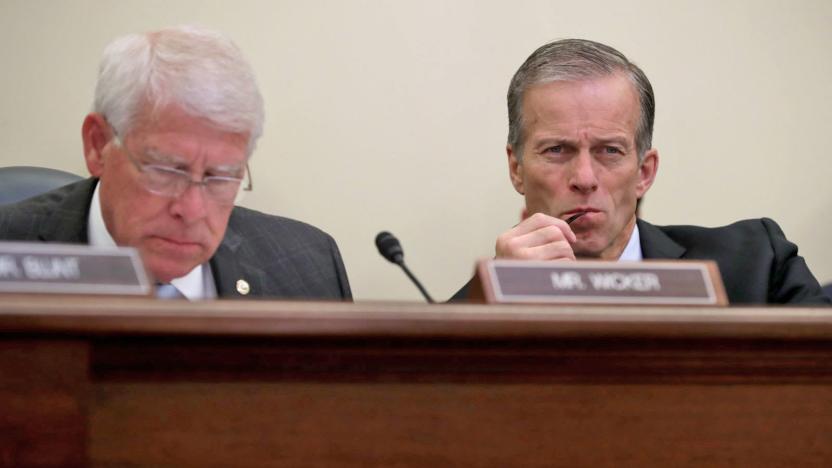
Senate bill takes aim at illegal robocalls
Three senators have proposed new legislation aimed at deterring robocall scams. The Telephone Robocall Abuse Criminal Enforcement and Deterrence Act, or TRACED, Act would give the FCC broader authority to penalize those that violate telemarketing restrictions, give the commission a longer window in which to act and establish an interagency working group that would explore additional actions that might deter robocall scams going forward. "As the scourge of spoofed calls and robocalls reaches epidemic levels, the bipartisan TRACED Act will provide every person with a phone much needed relief," Senator Ed Markey (D-MA), a cosponsor of the proposed legislation, said in a statement. "It's a simple formula: call authentication, blocking and enforcement, and this bill achieves all three."
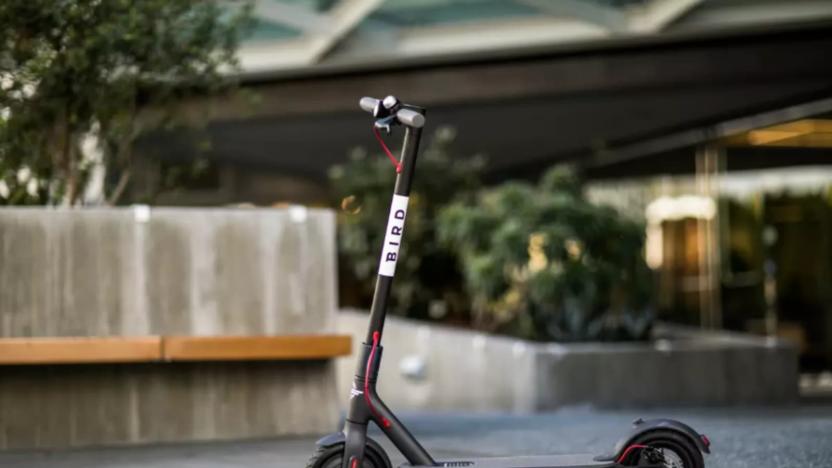
Bird launches UK's first scooter sharing service on one London path
London faces some of the biggest transport problems in the world, but one startup thinks its electric scooter scheme could be the solution -- as long as it can get around the UK's draconian vehicle laws. US company Bird is set to launch the UK's first scooter-hire service in the capital, but it's only got permission to do so along a single path in the east London Olympic Park.

Tim Cook calls for GDPR-style privacy laws in the US
Apple CEO and long-time data privacy advocate Tim Cook has made an impassioned speech calling for new digital privacy laws in the US. At a privacy conference in Brussels, Cook said that modern technology has resulted in a "data-industrial complex" where personal information is "weaponized against us with military efficiency," and in a way that doesn't just affect individuals but whole sections of society.
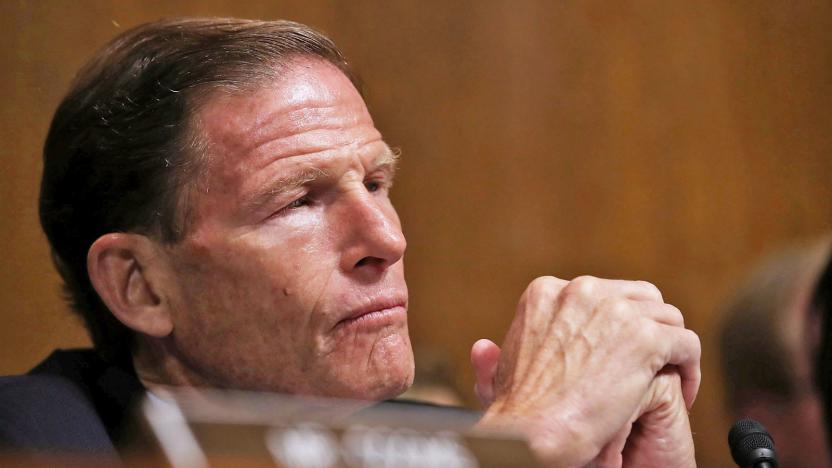
Senator calls for FTC investigation into Google+ data exposure
Senator Richard Blumenthal (D-CT) said during a Congressional hearing today on consumer data privacy that he's calling for an investigation into Google's latest data exposure. During his questioning of those testifying before the committee -- which included Andrea Jelinek, chair of the European Data Protection Board, and Alastair Mactaggart, the real estate developer who introduced a consumer privacy ballot measure in California -- he called the Google+ data exposure "the elephant in the room" and emphasized the need for greater consumer privacy protections in the US.

Senate passes bill that lets the government destroy private drones
This week, the Senate passed the FAA Reauthorization Act, which, among other things, renews funding for the Federal Aviation Administration and introduces new rules for airports and aircraft. But the bill, which now just needs to be signed by the president, also addresses drones. And while parts of the bill extend some aspects of drone use -- such as promoting drone package delivery and drone testing -- it also gives the federal government power to take down a private drone if it's seen as a "credible threat."

California's new laws bolster security for connected devices
California just raised the baseline for security in the Internet of Things... to a degree. Governor Jerry Brown has signed very similar Assembly and Senate bills that require hardware makers to include "reasonable" security measures for connected devices. All gadgets will require at least some kind of protection against unauthorized data access. If they connect to the internet, they'll require either a preset password "unique to each device manufactured" or else the ability to generate a new authentication method (such as a custom password) on initial setup. You shouldn't see hackers compromise legions of security cameras or routers simply because they're using the same default password.
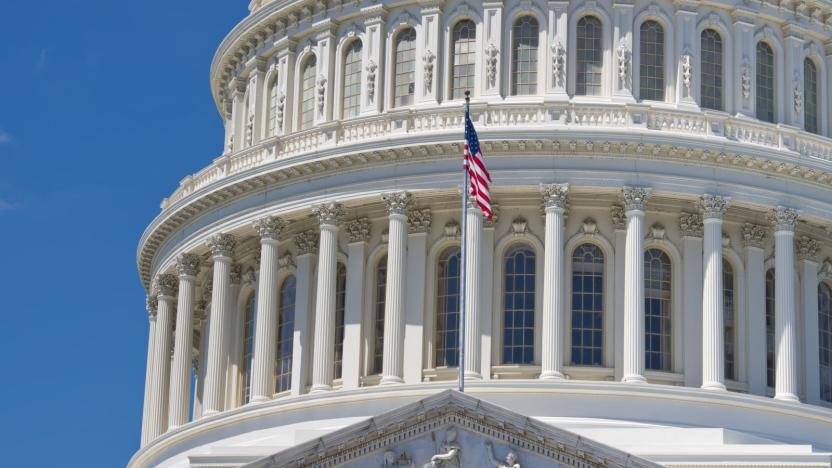
Senate bill would boost AI adoption in federal government
The US government is only dabbling in artificial intelligence at the moment. It might make a larger commitment before long, however. A bipartisan group of senators (Brian Schatz, Cory Gardner and Rob Portman) have introduced an AI in Government Act that would increase federal AI adoption by both including AI in data-related plans and supplying the resources to make those plans a reality. Thankfully, this isn't just a question of throwing money at the problem -- it would have multiple government organizations shift more attention to the emerging technology.

Lawmakers want to expand AMBER Alerts to US territories
Two US lawmakers have introduced legislation that would help expand the AMBER Alert system to all territories, which include American Samoa, Guam, the Northern Marianas Islands, Puerto Rico and the US Virgin Islands. Established nationally in 2003, the system sends alerts over TV, radio, digital billboards and cellphones and has helped find more than 900 missing children across the US. "AMBER Alerts have helped save hundreds of children. There's no good reason for US territories to be excluded from this system," said Senator Brian Schatz (D-HI), who introduced the bill along with Senator Lisa Murkowski (R-AK). "With this bill, we can help children and their families quickly end the nightmare that is child abduction."

California may ban terrible default passwords on connected devices
California looks set to enact a law that aims to protect connected devices against hackers. The state senate has sent Governor Jerry Brown draft legislation that could beef up security across the vast ocean of smart gadgets.







